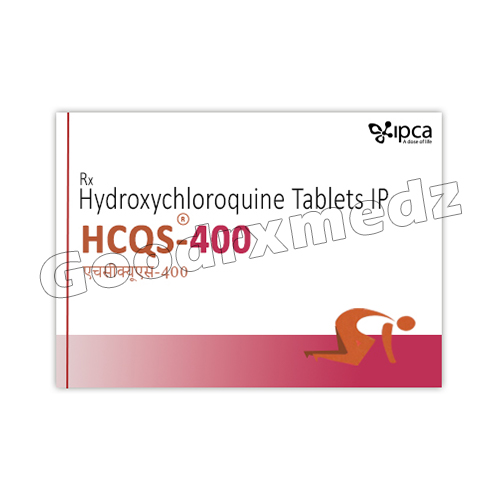Hydroxychloroquine 400 Mg
Hydroxychloroquine 400 mg is a medication primarily used to prevent and treat malaria, a disease caused by parasites that enter the body through a mosquito bite. In addition to treating autoimmune conditions such as lupus and rheumatoid arthritis, it is also used as a preventative measure.
Uses
- Preventing and treating malaria
- Treating rheumatoid arthritis
- Treating lupus
Benefits
- Effective in preventing and treating malaria
- Helps to reduce the symptoms of rheumatoid arthritis and lupus
- Can be used to treat other conditions such as porphyria cutanea tarda
Dosage
- The usual adult dose for malaria prophylaxis is 400 mg salt (310 mg base) orally once a week
- The usual adult dose for malaria treatment is 800 mg salt (620 mg base) orally as an initial dose, followed by 400 mg salt (310 mg base) at 6, 24, and 48 hours after the initial dose
- The usual adult dose for rheumatoid arthritis is 200 to 400 mg salt (155 to 310 mg base)/day orally divided into 1 or 2 doses
Other Dosage
Side Effects
- Common side effects include headache, dizziness, nausea, stomach pain, loss of appetite, weight loss, feeling nervous or irritable, skin rash or itching, and hair loss
- Serious side effects include fast or irregular heartbeat, lightheadedness, dizziness, or fainting, visual disturbances, loss of vision, seizures, and decreased consciousness or coma
Precautions
- Hydroxychloroquine 400 mg can cause serious heart problems, including QT prolongation
- It can also cause irreversible damage to the retina of the eye
- Patients with a history of heart problems, eye problems, or other medical conditions should use caution when taking hydroxychloroquine
- Pregnant women should use caution when taking hydroxychloroquine 400 mg, as it may harm the unborn baby
Interactions
- Hcqs 400 mg can interact with other medications, including antibiotics, antacids, and blood thinners
- Patients should inform their doctor of all medications they are taking before starting hydroxychloroquine
Overdose
- Overdose symptoms include fast or irregular heartbeats, lightheadedness, dizziness, or fainting, visual disturbances, loss of vision, seizures, and decreased consciousness or coma.
- The patient should seek medical attention as soon as possible if they have overdosed
Disposal
- Hydroxychloroquine should be disposed of properly to prevent accidental ingestion by children or pets
- Patients should follow the instructions provided by their doctor or pharmacist for disposing of unused medication.
| Active ingredient | Hydroxychloroquine |
|---|---|
| Form | Tablets |
| Prescription | Required |
| Shipping | 6 To 15 days |
| Strength | 400 mg |








